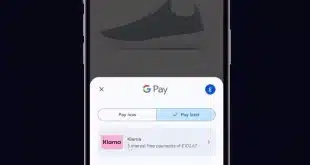The last mile is frequently the hardest part of any journey. The U.S. Treasury Department is wrestling with that phenomenon as it attempts to eliminate its remaining 5 million monthly checks for distribution of Social Security and other federal benefits by a looming March 1 deadline. Treasury’s Financial Management Service is now making a last-minute push to convert its check recipients to payment by direct deposit or the government’s Direct Express prepaid MasterCard.
“Our expectation is that everyone who can comply will comply by March 1st, 2013,” Walt Henderson, director of the EFT Strategy Division in FMS, tells Digital Transactions News. “We realize there are special-needs cases.”
In addition to the few people that have a genuine need for a paper check, FMS is “dealing with some procrastinators,” Henderson says. “I think it is lack of knowledge, or discomfort with electronic payment.”
Under a rule adopted by Treasury in December 2010, all recipients of Social Security, Supplemental Security Income (SSI), Veterans Affairs, Railroad Retirement Board, and Office of Personnel Management benefits and other non-tax payments and some other federal benefits must convert to direct deposit or to the Direct Express prepaid card by March 1.
Two years ago, when the government embarked on the check-reduction initiative, some 11 million checks were going out each month, Henderson notes. That’s now down by more more than 50%. Henderson says getting the number of checks to zero is impossible, at least by March 1, so he’s set his sights on a more realistic range of 2.5 million to 3 million. That’s still a further reduction of 50% from today’s total, a tall order for less than three months.
To press its case, FMS has developed public-service announcements and educational materials. It also is distributing press releases, the latest of which came out Tuesday, and working with 1,800 partners to spread the word that checks are going away. More than 1,200 of those partners are banks and credit unions; the rest are community- and faith-based organizations, local police, and national organizations such as the Red Cross. Banks, for example, are placing fliers in branches urging customers to sign up for direct deposit.
Henderson says the Jan. 8 press release “has gotten pretty good pick-up” and that he and other Treasury official have been doing national broadcast interviews over the past day. One of their goals is to counter what he says is an incorrect belief among many senior citizens, the main recipients of Social Security benefits, that they must use a Web site to convert. In fact, all they need to do is call Treasury’s GoDirect phone number, 800-333-1795, or visit local Social Security or other federal benefits offices to sign up for either of the electronic delivery options. Or, they can visit their bank or credit-union branch to enroll in direct deposit.
The Internet is an option, through GoDirect.org, but not a requirement. “In this retirement-benefits population, there is a lot of misperception that you have to use the Internet,” Henderson says.
The deficit-plagued federal government has a clear interest in reducing check expenditures. According to Henderson, a benefits check costs $1.02 to produce, mail and process, whereas a direct deposit or prepaid card load via the automated clearing house network costs only about 10 cents.
The vast majority of government electronic-payment recipients, some 65 million, use direct deposit. The Direct Express MasterCard issued by Comerica Bank has 3.5 million active users, according to Henderson.
Treasury is encouraging the remaining check recipients to sign up for direct deposit if they have a checking account. “We don’t want to send the card to someone who has a bank account,” he says.





